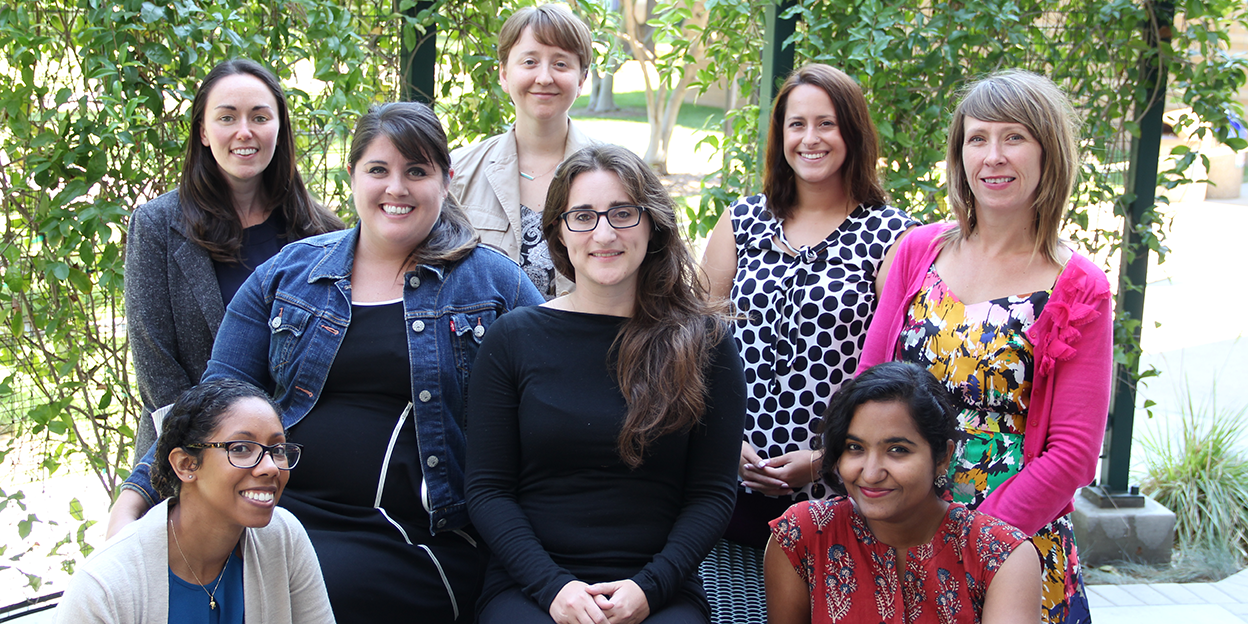After hearing from last year’s Graduate Advisory Committee (GAC) about what they thought was the biggest challenge HumWork continued to face when it came to graduate student professionalization, we asked the incoming GAC to discuss what they were looking forward to accomplishing during their tenure on the committee. Their responses are below, and we’re looking forward to seeing how these ideas and projects develop!
Sowparnika Balaswaminathan
 When I came to this country seven years ago to become an anthropologist, the future was distant and hazy. Nonetheless, I strongly believed in a world etched with structured paths to predetermined destinations. Certainly, my South Asian upbringing had contributed to this karmic ontology; however, the academic institution was also populated by people who assumed that if you did all that you were supposed to in the process of getting a PhD, you would, of course, get a job. Since then, this ontological bubble has burst. What are you supposed to do when the job that you were trained for might not be the job you want or get? What can you do as a stranger in a somewhat-still-strange land?
When I came to this country seven years ago to become an anthropologist, the future was distant and hazy. Nonetheless, I strongly believed in a world etched with structured paths to predetermined destinations. Certainly, my South Asian upbringing had contributed to this karmic ontology; however, the academic institution was also populated by people who assumed that if you did all that you were supposed to in the process of getting a PhD, you would, of course, get a job. Since then, this ontological bubble has burst. What are you supposed to do when the job that you were trained for might not be the job you want or get? What can you do as a stranger in a somewhat-still-strange land?
Although universities in general are seeking more undergraduates, including international students, it has become clear that—at least in the UCs—this push will be towards the sciences, and the goal is to get students to graduate as soon as possible rather than to offer a supportive and long-lasting community. This change has also had repercussions for graduate students aiming for tenure track careers, as adjuncts do the required job in a much cheaper way than potential professors. Considering this corporatization of the university, during my time as a member of the Graduate Advisory Committee I plan to work on two projects that I consider to have fallen on the wayside. One is to create a working database of alumni from my department who are willing and eager to keep in touch with graduate students and operationalize my process such that it could be replicated under similar circumstances. The second is to research the opportunities and limitations circumscribing international graduate students in the humanities and social sciences, who do not have the support system or legal standing to opt for some of the alternatives available to American students. Through these two projects, I hope to be able to address the logistical aspects of long-term networking for graduate students whom the university system cannot accommodate anymore.
The first Humanists@Work conference I attended at Sacramento felt like a goal-oriented workshop but the second at Los Angeles was a familiar community. It was a community that wanted to help you, hear your voice, and see you succeed. It was a community I had expected to see when I first came to the university and that I had just seen glimpses of since then. My efforts for the forthcoming year will be towards strengthening and expanding this community so that we achieve a thoughtful and expedient evolution while maintaining the supportive and vigorous spirit of HumWork.
Erica Lee
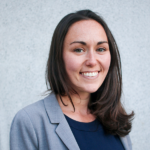 As part of the HumWork Advisory Committee, I look forward to addressing how faculty can help their students prepare for all career paths of interest. Advisors are often the most critical component of doctoral student happiness and success. Faculty also constitute the core of each academic discipline and the university as a whole. So faculty are critical to any effort to improve students’ professional outlook and preparation.
As part of the HumWork Advisory Committee, I look forward to addressing how faculty can help their students prepare for all career paths of interest. Advisors are often the most critical component of doctoral student happiness and success. Faculty also constitute the core of each academic discipline and the university as a whole. So faculty are critical to any effort to improve students’ professional outlook and preparation.
Faculty are also invested in preserving and advancing scholarship in a changing world. Doctoral students working beyond the tenure track demonstrate the meaning, applicability, and importance of the humanities and social sciences every day. So, faculty are natural allies of doctoral students preparing for a number of professional and civic roles.
Finally, doctoral students and faculty share a commitment to education. To preserve the value of education, PhDs must have unobstructed avenues to engaging, sustainable work within or beyond the academy.
I think that most faculty are eager to help their students make the most of their doctoral training and careers. I look forward to considering how faculty advisers can adapt their roles as teachers, advisers, and mentors as the career paths of PhDs transform.
Rebecca Lippman
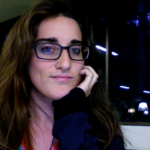 Since attending the first Humanists@Work event at UC Berkeley in the Spring of 2014, I have actively explored the pursuit of a PhD as a process of gaining meaningful work experience. I believe that a comprehensive description of the variation in administrative and labor structures that graduates navigate throughout their doctoral studies will empower students, enlighten employers and, quite honestly, save the university from having to reinvent itself in the name of “professionalization.”
Since attending the first Humanists@Work event at UC Berkeley in the Spring of 2014, I have actively explored the pursuit of a PhD as a process of gaining meaningful work experience. I believe that a comprehensive description of the variation in administrative and labor structures that graduates navigate throughout their doctoral studies will empower students, enlighten employers and, quite honestly, save the university from having to reinvent itself in the name of “professionalization.”
My contributions to the 2016-17 Advisory Committee will both visualize and parody the labor that is so often elided into the navel-gazing figure of the academic. Rather than imagine a variety of new programming that would grant skills-based certificates in order to “professionalize” students, I wish to illuminate the lives and practices of current students so as to clearly articulate the labor that is already an integral part of the contemporary experience of graduate school.
Long before they begin their career transitions, graduate students must learn to value themselves as people who are capable of pivoting from one highly-trained workforce to another. With that knowledge and confidence, Humanities PhDs have a higher chance of generating their own influential and satisfying trajectories towards gainful employment during and after the completion of their degrees.
Dorie Perez
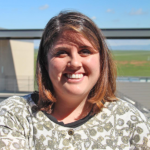 As an advisory board member with the Humanists@Work initiative, I am eager to bring career development and professionalization tools back to the UC Merced campus. As the newest member of the University of California cohort, Merced is still developing its graduate student resources and that includes those geared towards the Humanities. I intend to help put on an on-campus event during the AY2016-2017 that focuses on the specific tools graduate students need to cultivate as they look towards their future careers in and out of academia. My work on campus is in addition to the planning duties that shape the twice-yearly workshops for which HumWork is known, which are still much-needed spaces for many UC graduate students.
As an advisory board member with the Humanists@Work initiative, I am eager to bring career development and professionalization tools back to the UC Merced campus. As the newest member of the University of California cohort, Merced is still developing its graduate student resources and that includes those geared towards the Humanities. I intend to help put on an on-campus event during the AY2016-2017 that focuses on the specific tools graduate students need to cultivate as they look towards their future careers in and out of academia. My work on campus is in addition to the planning duties that shape the twice-yearly workshops for which HumWork is known, which are still much-needed spaces for many UC graduate students.
Olivia Quintanilla
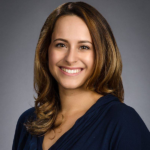 I anticipate inspirational action and community building to galvanize the 2016-2017 season of Humanists@Work. The past Humanists@Work events built upon existing motivation to materialize PhD training and fostered inspiration to develop meaningful strategies that address the unclear expectations of students, faculty, and administrators. As a current 4th year PhD student in the Department of Ethnic Studies at UC San Diego, I have struggled with visualizing “success” because of the limited career options discussed in class and on campus. The critical questions folks in Ethnic Studies pose—and the important scholarship they produce—initially animated my interest in graduate school. Upon enrolling, I quickly realized I was expected to go on to teach and publish. In all honestly, teaching as a profession never crossed my mind. I deeply value my doctoral education, but I am committed to envisioning my purpose as surpassing the predications outlined thus far. Like many others, I crave conversations that speak to and validate interests outside of academia. I need and will help build support networks to strategically quantify how research, critical thinking, and communication skillsets transcend across professional environments.
I anticipate inspirational action and community building to galvanize the 2016-2017 season of Humanists@Work. The past Humanists@Work events built upon existing motivation to materialize PhD training and fostered inspiration to develop meaningful strategies that address the unclear expectations of students, faculty, and administrators. As a current 4th year PhD student in the Department of Ethnic Studies at UC San Diego, I have struggled with visualizing “success” because of the limited career options discussed in class and on campus. The critical questions folks in Ethnic Studies pose—and the important scholarship they produce—initially animated my interest in graduate school. Upon enrolling, I quickly realized I was expected to go on to teach and publish. In all honestly, teaching as a profession never crossed my mind. I deeply value my doctoral education, but I am committed to envisioning my purpose as surpassing the predications outlined thus far. Like many others, I crave conversations that speak to and validate interests outside of academia. I need and will help build support networks to strategically quantify how research, critical thinking, and communication skillsets transcend across professional environments.
As part of the Humanists@Work team, I will invest labor towards creating environments and culture that inspire students to make choices that are meaningful for them, and lead to high job and life satisfaction. Success in these areas is not one size fits all and occurs at various scales. It is critical that we strategize together how faculty and administrators can reformulate professionalization tools, advice, and support to engage PhDs interested in the education of a graduate program but desire to leverage the training in other industries. I look forward to advancing this positive inspirational energy into action by organizing a local workshop and building dialogue to motivate folks to engage with one another and help make the Humanists@Work movement more accessible. By coming together on individual campuses and at Humanists@Work events, we can mobilize behind the shared purpose of seeking necessary support from our academic institutions and community to achieve life and job satisfaction, with no caveats that this should occur within any one industry. I hope you will join us! Please email me with questions or ideas for building this community, oquintan@ucsd.edu.
Meg Sparling
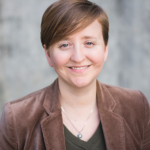 I am a seventh-year PhD candidate in English at UC-Davis. My dissertation looks at the representation of slave labor in nineteenth-century American literature. I am fascinated by my research topic, but after nine years in graduate school I am no longer interested in pursuing a tenure-track job. During the next academic year, I will finish my degree, look for an alternative career path, and work with the Humanists@Work initiative to improve the state of graduate student career preparation in the UC system.
I am a seventh-year PhD candidate in English at UC-Davis. My dissertation looks at the representation of slave labor in nineteenth-century American literature. I am fascinated by my research topic, but after nine years in graduate school I am no longer interested in pursuing a tenure-track job. During the next academic year, I will finish my degree, look for an alternative career path, and work with the Humanists@Work initiative to improve the state of graduate student career preparation in the UC system.
This third objective is very important to me personally. I would like to leave my degree program with a sense that career preparation will be easier for the graduate students who come after me: that they will have greater awareness of the resources available to them, they will better understand the possibilities their degree opens up for them professionally, and they will feel more connected to each other as they face the ramifications of (what I consider to be) the academic labor crisis.
To achieve these goals, I will be working on my campus to connect my fellow graduate students to existing graduate career programs and to each other, in the hope that this will allow them to receive (or create) the help they need. I am eager to engage with my peers, hear more about their needs and experiences, and empower them to work collaboratively to improve their career preparation during graduate school. I am also eager to work with faculty to involve them in this issue, and show them what they can do to more adequately support their advisees’ career preparation.
Finally, I am excited to contribute to the ongoing programming of the invaluable Humanists@Work initiative—which I have found extremely useful in my own journey—and to strengthen the connection between Humanists@Work and the graduate programs on my campus.

